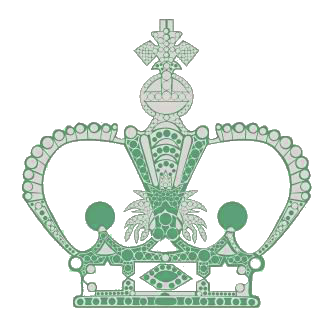






1. Work, work, my boy, be not afraid;
Look labor boldly in the face;
Take up the hammer or the spade,
And blush not for your humble place.
2. There’s glory in the shuttle’s song;
There’s triumph in the anvil’s stroke;
There’s merit in the brave and strong.
Who dig the mine or fell the oak.
3. The wind disturbs the sleeping lake,
And bids it ripple pure and fresh;
It moves the green boughs till they make.
Grand music in their leafy mesh.
4. And so the active breath of life.
Should stir our dull and sluggard wills;
For are we not created rife.
With health, that stagnant torpor kills?
5. I doubt if he who lolls his head.
Where idleness and plenty meet,
Enjoys his pillow or his bread.
As those who earn the meals they eat.
6. And man is never half so blest.
As when the busy day is spent.
So as to make his evening rest.
A holiday of glad content.
 STUDY GUIDE
STUDY GUIDE
A. Word Definition
1. shuttle: device used in weaving.
2. anvil: block on which metal is hammered.
3. mesh: network.
4. sluggard: habitually lazy and idle.
5. rife: abounding.
6. stagnant: inactive.
7. torpor: laziness, stupidity.
8. lolls: recline in a lazy manner.
9. content: happiness.
B. Comprehension Questions
1. Do you think the author meant “Work” to apply to girls as well as boys? Explain.
2. “Work” is a poem. Would it have been equally effective as a story?
3. What profession uses the anvil mentioned in the second verse of “Work”?
a. a gardener b. a doctor c. a miller d. a blacksmith.
4. In the last verse, the author describes the pleasure of rest at the end of a working day. Have you experienced this?
5. What types of paying work did American women do in the nineteenth century?
6. When were these kinds of work were first performed? You can research them on the Internet.
a. farming b. mining c. carpentry d. telephone repair.
7. Did wealthy American people work in the nineteenth century? Explain.
8. Do you think the author of “Work” would have made a good teacher? Why or why not?
C. Writing Work.
Write a newspaper article about whether it is healthier to work at a desk or to do active physical work.